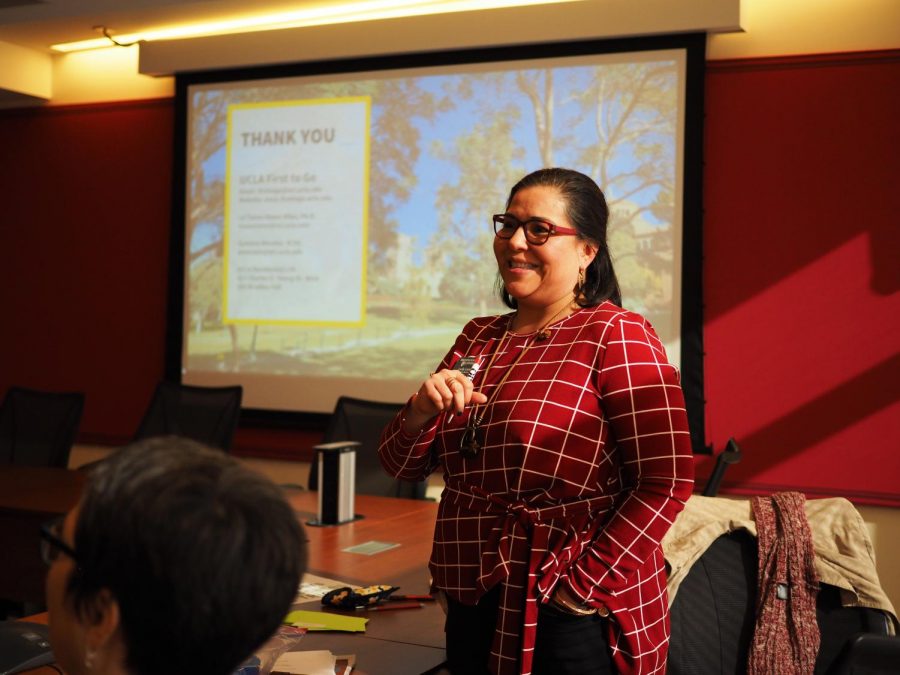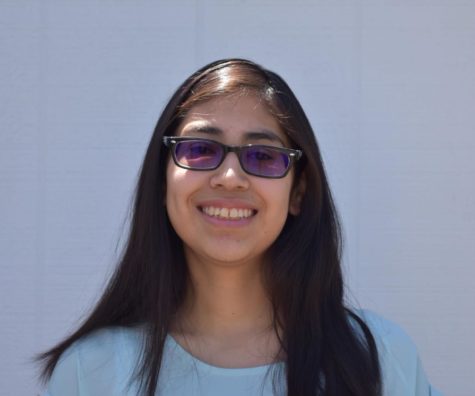Group hosts webinar to identify first-gen student needs
Grad school dean says this resource aligns with changing college student population
Lucila Loera-Herrera, Executive Director of the Office for Access & Opportunity, speaks about strategies for supporting first generation students on Thursday afternoon at the CUB.
February 24, 2020
A program under WSU’s Division of Student Affairs hosted a webinar on ways to support first-generation students which includes defining first-generation, targeting the population and identifying their needs.
La’Tonya Rease Miles, UCLA director of first year experience and strategic initiatives, said First Generation Forward hosted the webinar to help programs that have minimal funding to support first-generation students.
Symone Morales, UCLA coordinator of first year experience, said the term first-generation student is not a stable definition. This is because students can have parents with a four-year degree they got from a school outside the U.S.
Morales said the standard definition of a first-generation student is a student whose parents or legal guardians have not completed a four-year degree.
The first thing Rease Miles and Morales look for in an institution is how the institution compares to UCLA in size and population of first-generation students.
Morales said WSU should look at other institutions with similar populations of first-generation students to see what programs are successful in helping the students.
“When you walk around campus or when you walk into the grocery store you will [not] automatically be able to see that someone is also the first in their family to go to college,” she said.
Morales said some people do not know that they are first-generation students, so it is important to educate others on what it means to be first-generation.
“I think the most important part is naming the identity for the student,” she said. “Celebrating it and building a culture of pride around it.”
Morales said their program has been successful because they listened to the students. She said it is important to listen to students because they know what they need or what can be improved.
Morales said creating relationships with the students and other key stakeholders can help create support for first-generation students. The needs of first-generation students include having an understanding of how to navigate college, having a network of support and being able to balance responsibilities.
Lucila Loera, executive director for WSU’s Office of Access and Opportunity, said it is important to serve students so they can be successful. This would be done by having conversations, collaboration and focusing on different student populations.
Raymond Herrera, assistant dean of the graduate school, said the webinar is timely and needed because student body populations are changing across the country.
Herrera said the webinars are important because it makes colleagues get together and share practices to help support first-generation students.
“[It creates] a sense of community amongst those who are working with the student populations,” he said.
Herrera hopes that the webinar leads to WSU improving the experiences of first-generation students.
“We can do more,” he said. “We’re on the road to doing more. We can do more.”










